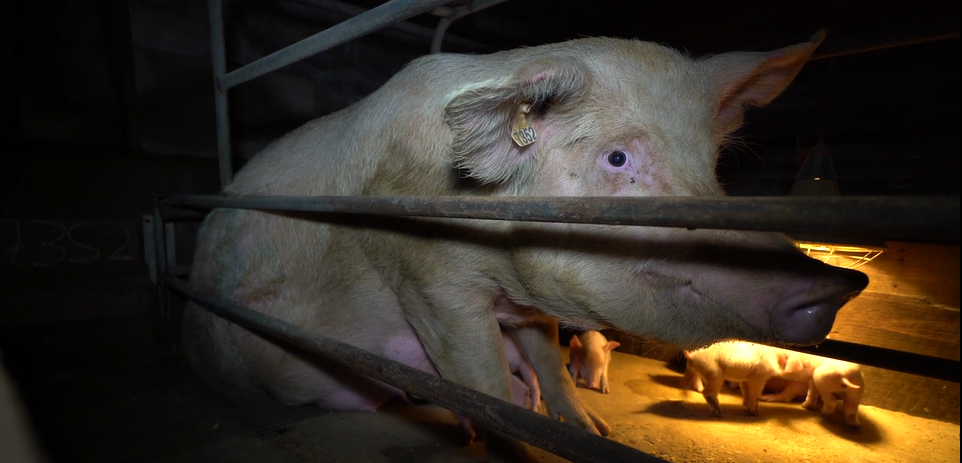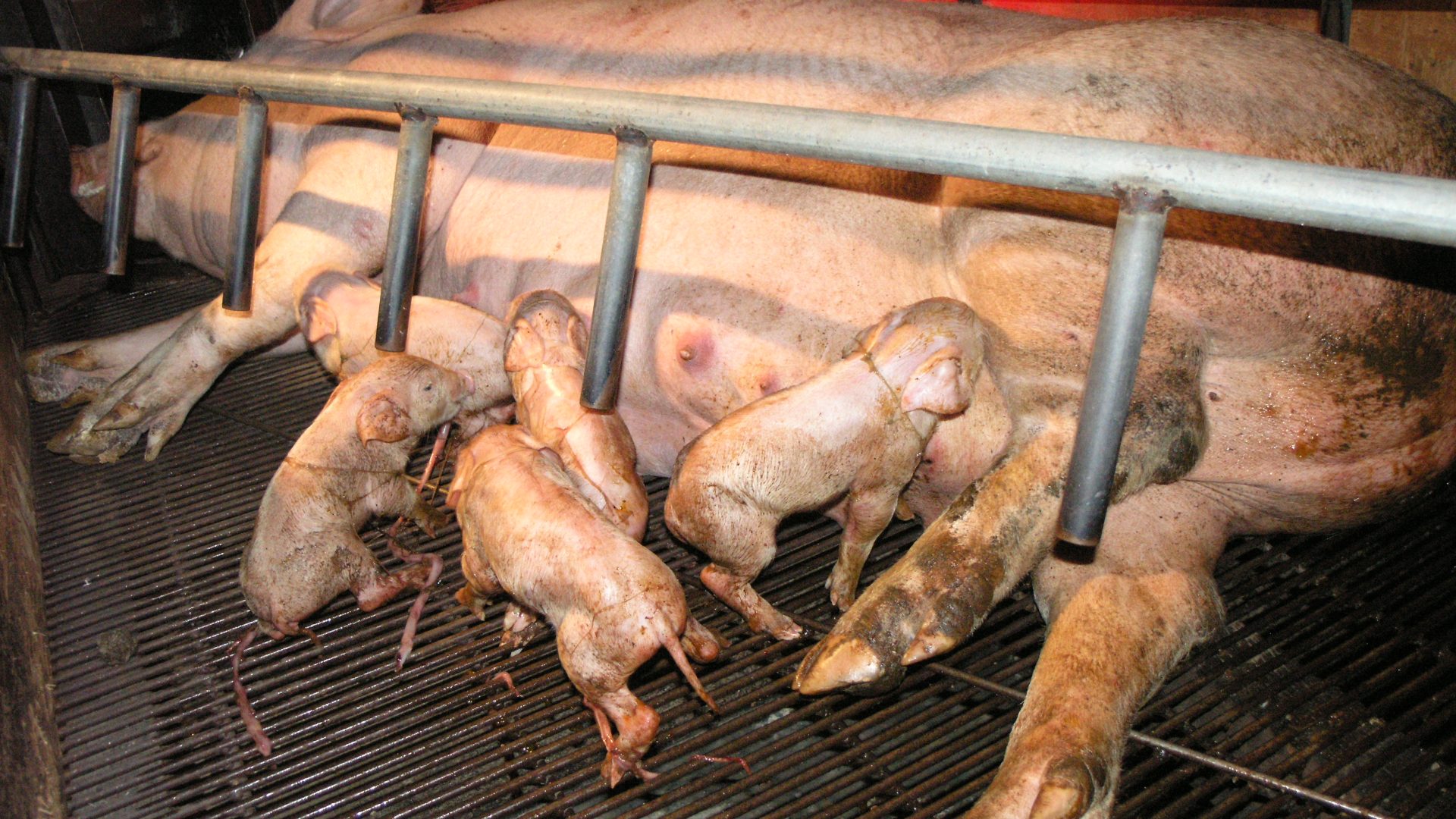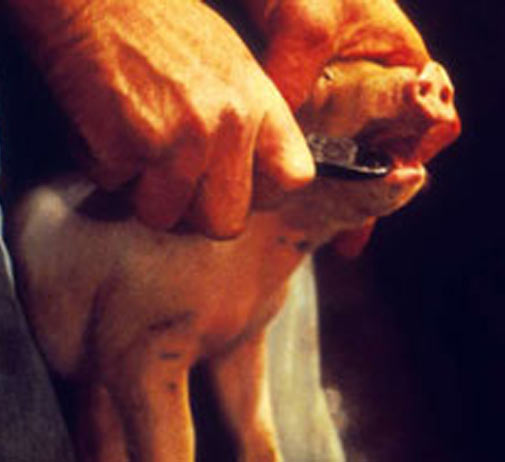Almost half a million pigs are subjected daily to cruel, outdated practices every year in Victoria alone. And annually, around 1.1 million pigs are killed in Victorian slaughterhouses, most in cruel gas chambers.
Their suffering is largely hidden from public view. Mother pigs are confined to cages the size of a small bathtub. As her newborn piglets are having their teeth and tails cut without any pain relief, their older siblings – already well versed in this cycle of cruelty – will be facing a terrifying death in a gas chamber.
Treated as mere ‘products’ rather than the sentient, emotionally intelligent beings they are, farmed pigs in Victoria are denied a life worth living and subjected to relentless cruel practices from birth until their last breath.
Through ‘codes of practice’ which provide exemptions to animal protection laws, the industry has been allowed to ‘write their own rules’, giving them license to prioritise profits over pig welfare.
Now, the Victorian Government is undertaking a significant inquiry into the welfare of farmed pigs and all Victorians are invited to have their say. Read on to see how you can make your voice heard for pigs – you have until 12 January 2024.











